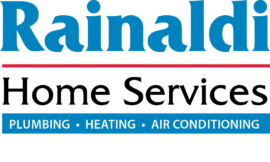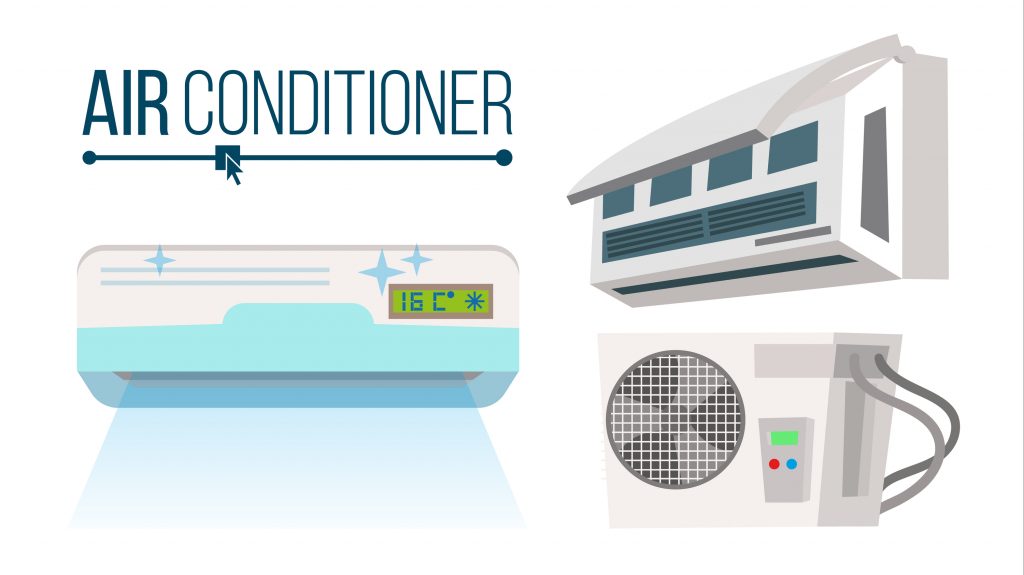Homeowners have a variety of choices when it comes to heating and cooling systems. Technology has improved efficiency and provided greater control, but deciding which system is best for a new build or a remodel requires looking at the situations in which each system will perform best.
DUCTLESS HVAC SYSTEMS
A ductless system is usually a wall-mounted indoor piece of heating/cooling equipment that is combined with an outside compressor. Only a small hole drilled into the wall is needed to install a ductless unit.
Pros of ductless system
- It’s less visible and make less noise
- It’s more energy efficient because there’s no air leakage
- It has an inverter-driven compressor which speeds up or slows down based on consumer needs rather than shutting off entirely
- The installation process makes it less vulnerable to security issues
Cons of a ductless system
- The up-front cost can be expensive
- It requires strict regular maintenance
- It’s not particularly aesthetic for an interior’s décor, and can’t be covered up
- It may need a fuel-based back-up if temperatures drop below zero
Best places to use a ductless system
Ductless would be a good choice any place you’d consider a window air conditioner or baseboard heating, such as a garage apartment, bonus room, or sun room. It’s also a good choice for adding air conditioning to a house with no existing ductwork.
A ductless unit costs several times more than a comparable window air conditioner or baseboard heating unit, but you get lower energy bills in return. How quickly you can recoup the up-front expense though savings depends on climate, consumer use, and local electricity rates. A specialist at Rainaldi can help you calculate this.
Professional installation of this type of system is important, because not only are there wiring and refrigerant requirements, but proper system sizing is crucial for capitalizing on its benefits.
ZONE SYSTEMS
A multi-zone heating and cooling system allows you to separately control various areas of your house. Each area, or zone, has its own thermostat and can be set to a different temperature.
Pros of zone system
- More control, allowing you to heat or cool a particular area in your home instantly
- More comfort, due to the ability to set different temperatures in different areas
- More savings, because properly installed, less trafficked areas can be set to a more energy efficient level
- More convenience with remote controls for temperature, fans, or even humidity levels
Cons of zone system
- It’s a more complex system
- It can be more expensive to install
- More equipment, which can mean more repairs in the future
Best places to use a zone system
Zone systems are a good choice when you have a lot of people with different preferences living in the same house. It can also be an efficient choice if there are areas in your home that get less use, such as a rarely used basement or spare bedroom, an exercise room used an hour per day, or a recreation room used only a few hours in the evening.
In cases where you have 3 or more areas to heat/cool differently, zoning with high efficiency (and smaller) equipment greatly helps with energy performance and keeps heating and cooling costs down.
CENTRAL HVAC SYSTEMS
Centralized HVAC circulates heated or cooled air from one source throughout a house into each room using a series of ducts. Most homes today use a central ventilation system for heating and cooling.
Pros of a central HVAC system
- Central HVAC provides the most heating and cooling capacity
- You can heat or cool an entire home at the touch of a button
Cons of a central HVAC system
- It sets the whole house at the same temperature
- It can cost more to run, especially if the home is not well insulated
Best situations for a central HVAC system
Central HVAC systems allow you to utilize heat pumps, which transfers heat in the air outside to produce cooler temperatures indoors (and vice versa). Because heat pumps move heat/cool instead of generating it, they use much less energy – about half that of furnace or baseboard heat.
When installing or replacing a central HVAC system, the most important thing to consider is size ratio. If you have a system that’s too large for your home, regulating temperature and humidity will use too much energy. If the system is too small for your home, it won’t be able to keep up with the desired temperature level, especially during extreme weather.
Get Professional AC Installation in Orlando
If you need help deciding which system is best for your Orlando, Florida area home, Rainaldi can help. Give us a call or schedule an appointment online.

